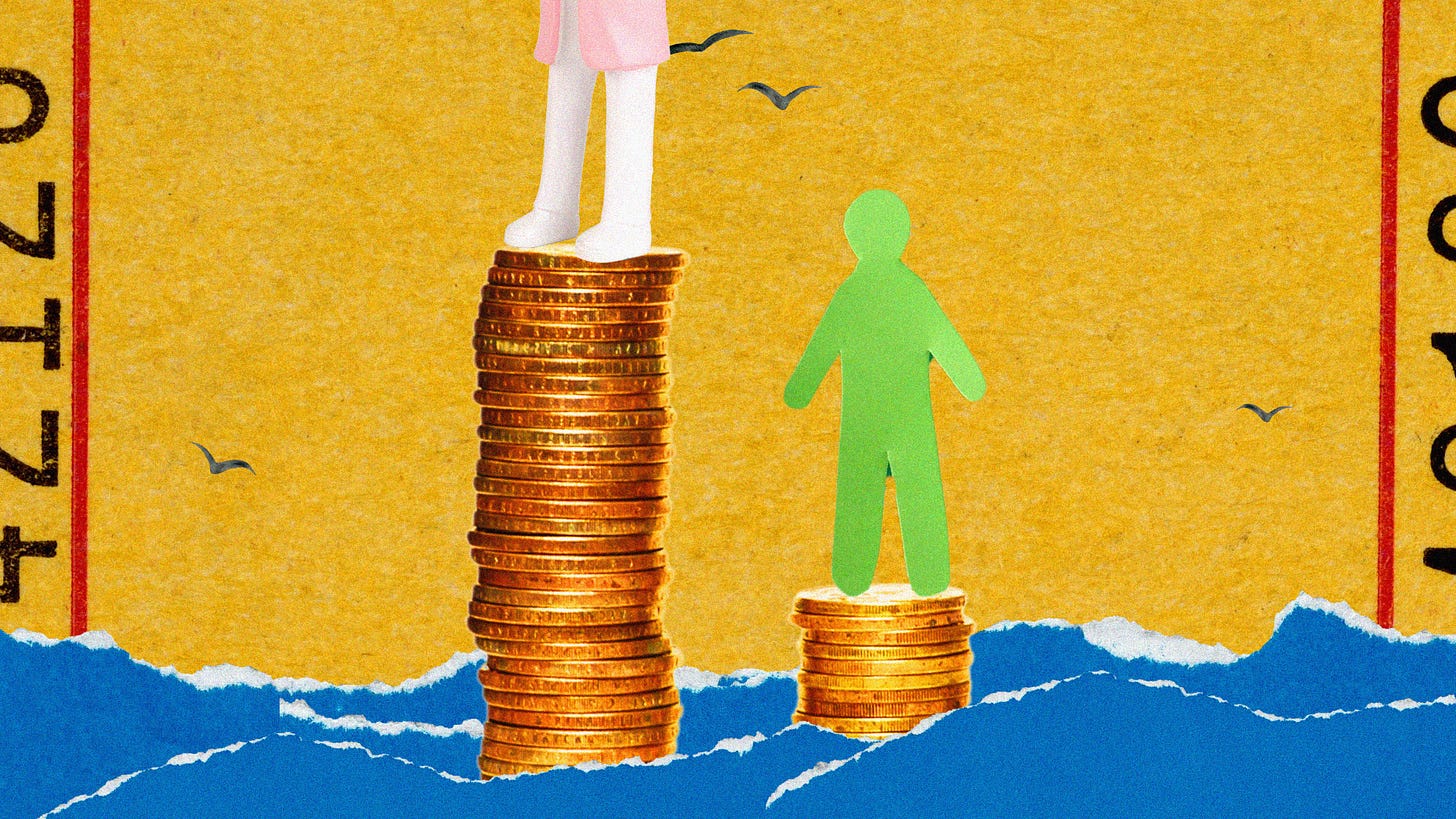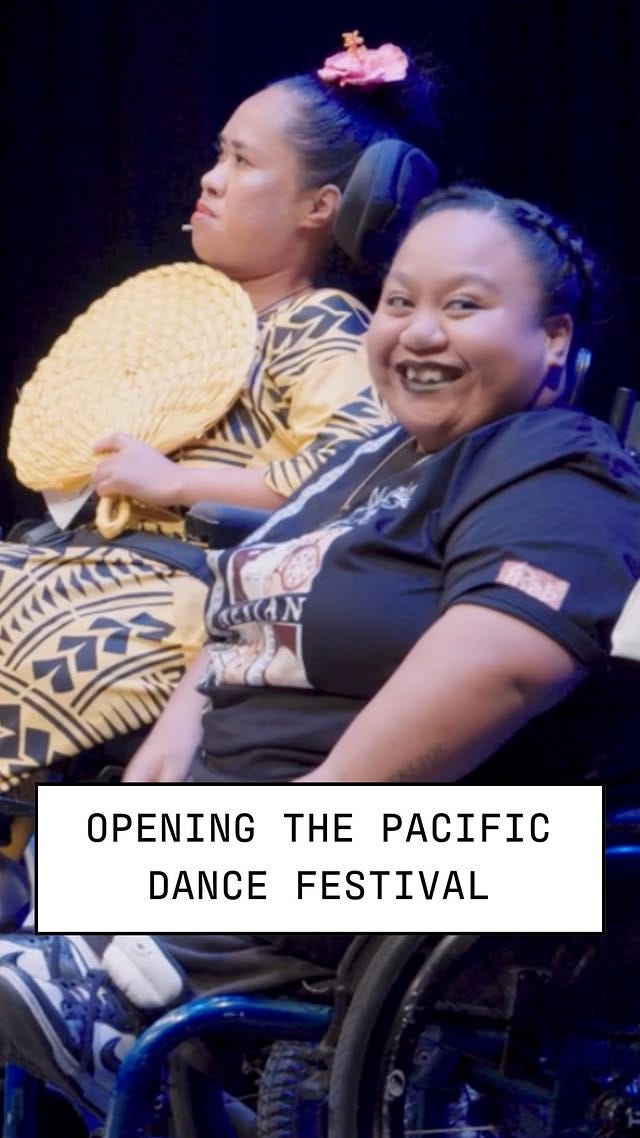Happy new year’s eve! ✨
In this week’s delicious edition:
Reflections from this Māori year from Ella Sargison 💫
Health New Zealand “ableist by nature”, says its own employee
Disability Rights Commissioner Prudence Walker explains how pay equity affects us ⚖️
From tomorrow, we enter the Matariki period where we see the end of the old and the beginning of new. It’s a time that embodies the whakataukī, titiro whakamuri, kōkiri whakamua: we look back to move forward.
While looking back can be a little painful, it’s also our greatest and most available source of wisdom and learning. It informs us of what’s been tested, what hasn’t been unaccomplished, what we should never do again, and whose shoulders we stand on.
And to avoid the whiplash of suddenly looking backwards, it’s imperative that we pause and gently recontextualise ourselves in the past.
In the honouring of reflection, Ella Sargison writes about how during Matariki, she will be honouring her Oma who passed away last year.
Thinking about my Oma makes me realise how she, my Mum and I grew up in very rerekē (different) times. Sometimes I think people my age and younger don’t quite realise what life was like for our parents and friends of their generation. They didn’t have cool Te Reo Māori podcasts to listen to on their way to mahi or their workplace didn’t provide courses to explore tikanga and cultural competencies. When I took part in the Toitū Te Tiriti hikoi over the Harbour Bridge last year I felt an immense sense of pride in my culture and my whānau that have gone before me. I hope that my Oma and Mum got to feel that pride too.
Ella’s reflection of modern identity as tangata whaikaha and Takatāpui is also an encouraging reminder of our fortune to organise as collectives:
Nowadays, it’s up to us to take advantage of the technology and connections we have to grow our understanding and grow our culture and identity. There are so many more ways to reach out to minority groups such as disabled, Deaf, rainbow or takatāpui. I feel very fortunate to live in a time where I can see people like me on my socials, learn a tip from TikTok about altering clothes or listen to a podcast about the queer characters in the latest Netflix series. We have to remember that if our ancestors were from a minority group, it could have taken them years to meet or even see someone that had their disability.
🏥 RNZ reports on nothing surprising about navigating the health system in New Zealand with a disability. It’s basic things like the lack of Braille labelling on medication meaning Julie Woods couldn’t tell which of her two tubes of ointments was for her face and which was for her vagina.
On Saturday, the Cabinet had approved a suite of amendments to the Pae Ora (Healthy Futures) Act 2022 which had nothing for disabled people, let alone did it do anything to address the amplified impact of poor health care for disabled Māori.
Rachel Noble, who is deaf, is the disability strategy head of Health New Zealand and said the organisation which is “ableist by nature” needs to change the narrative at a systematic level.
The individuals who work within Health New Zealand are, on the whole, very willing to create inclusive and accessible health services, but they're not sure how and there are many systems within the system that need to be addressed.
🧒🏿 Christchurch’s public paediatric service is no longer assessing children over six years old for autism, The Press reports. In a letter from Health New Zealand to a Christchurch GP, it said the waiting list for specialist appointments in developmental paediatrics was approaching 12 months so children over the age of six would not be added.
📋 The Deputy Health and Disability Commissioner recommended that a provider apologises for taping socks to the hands of a woman with a significant impairment to stop her from putting them into her mouth. The NZ Herald reports on other allegations lodged by the woman’s sister which were not upheld. (CW: The detail of the reporting may be distressing as it describes abuse.)
🚪 In another complaint, the commissioner was critical of the fact that three support workers failed to follow policy in not physically checking on a resident who went missing. RNZ reported that a resident of a disability support service went missing on her birthday and was found more than a day later, cold and naked, less than a kilometre away from the facility. The complaint was upheld and the provider has been recommended to apologise and provide further training to staff around incident reporting, roles and responsibilities, and documentation standards.
💸 Prudence Walker writes that beyond financial security, fair pay indicates how certain workers are valued by its decision makers. On average, disabled people earn 7.6% less than non-disabled colleagues, and we still have a minimum wage exemption for disabled people. Walker says:
In the case of equal pay, disabled workers may unfairly be seen as less capable and, therefore, paid less. As disabled workers, we bring value to workplaces drawing on our lived experience in addition to other skills and experience required for jobs…
…Turning to pay equity claims, these are claims that relate to gender discrimination; they show up in jobs that are mostly done by women where their work has been historically undervalued.
Pay equity claims affect disabled people in a couple of ways, Walker says:
Pay equity claims affect disabled people when we are working in those jobs where claims were in place meaning that workers continue to be undervalued and paid unfairly. As well as being the group of workers that some disabled people who receive or engage support have regular contact with, there are also many disabled people and their whānau employed in care and support work.
The changes to pay equity claims do little to attract new workers into the care and support sector, which already faces a shortage of staff. This may mean there is less support available to those who need it to live with dignity and on an equal basis with others. We want our support people to be valued and to receive fair pay.
🎬 Nesian opened the The Pacific Dance Festival last weekend blending the cultures of tangata moana and tangata whaikaha. Check it out! ⬇️
🌜 Accessible cabaret? Say no more! Codeword Cabaret presents Paper Moon on July 2 on Karangahape Road in Tāmaki Makaurau. The show features an eclectic mashup of songs, skits, burlesque, drag, and comedy all NZSL-interpreted and audio described.
🚘 Our new office flatmates, Sweet Productions, are about to air their TV show License to Drive on Sky Open on July 2. It follows disabled folks learning to drive and gain a new way of independence. Episodes will be available on Sky Go and Neon from July 3.
Rest, eat, and reflect 🌌
Eda












